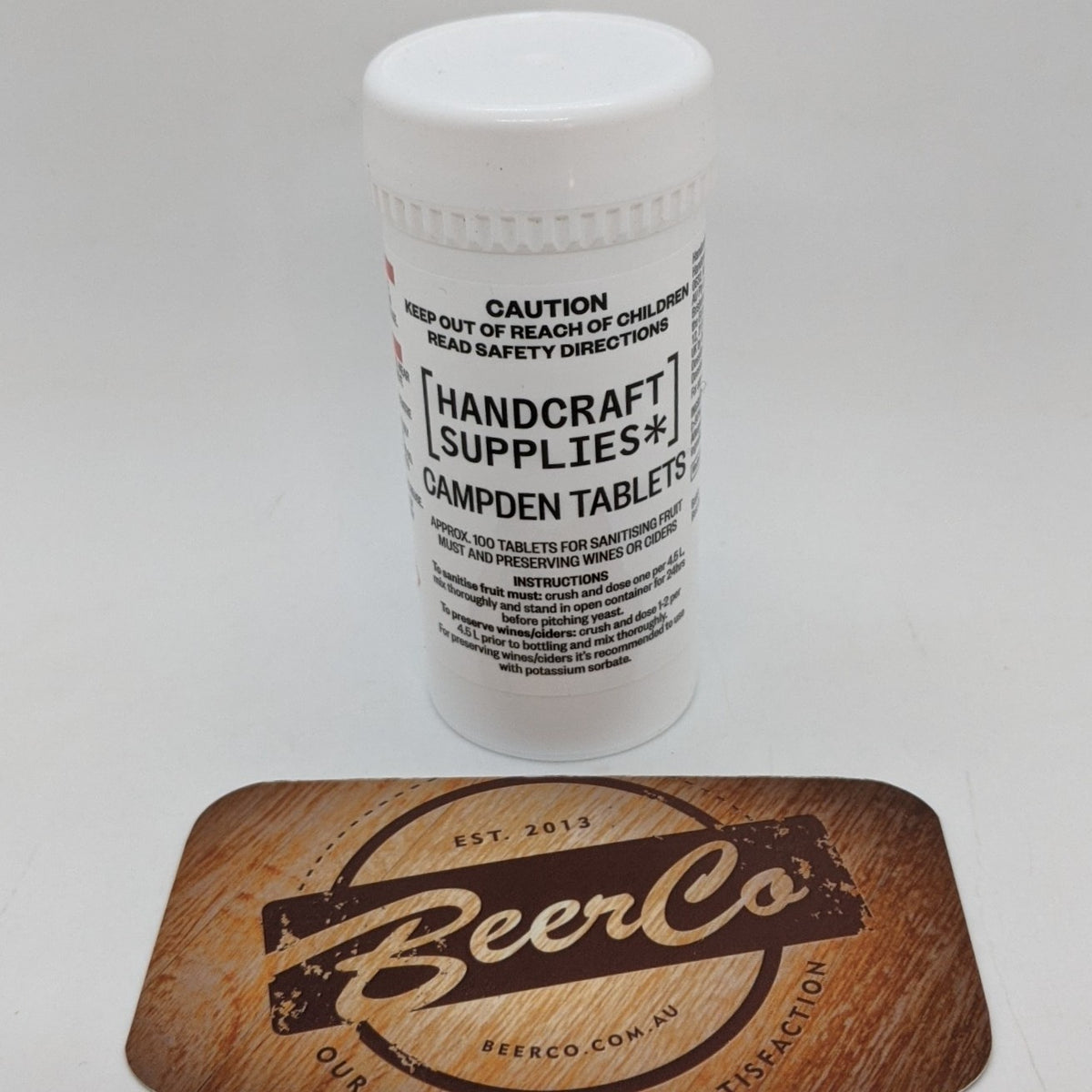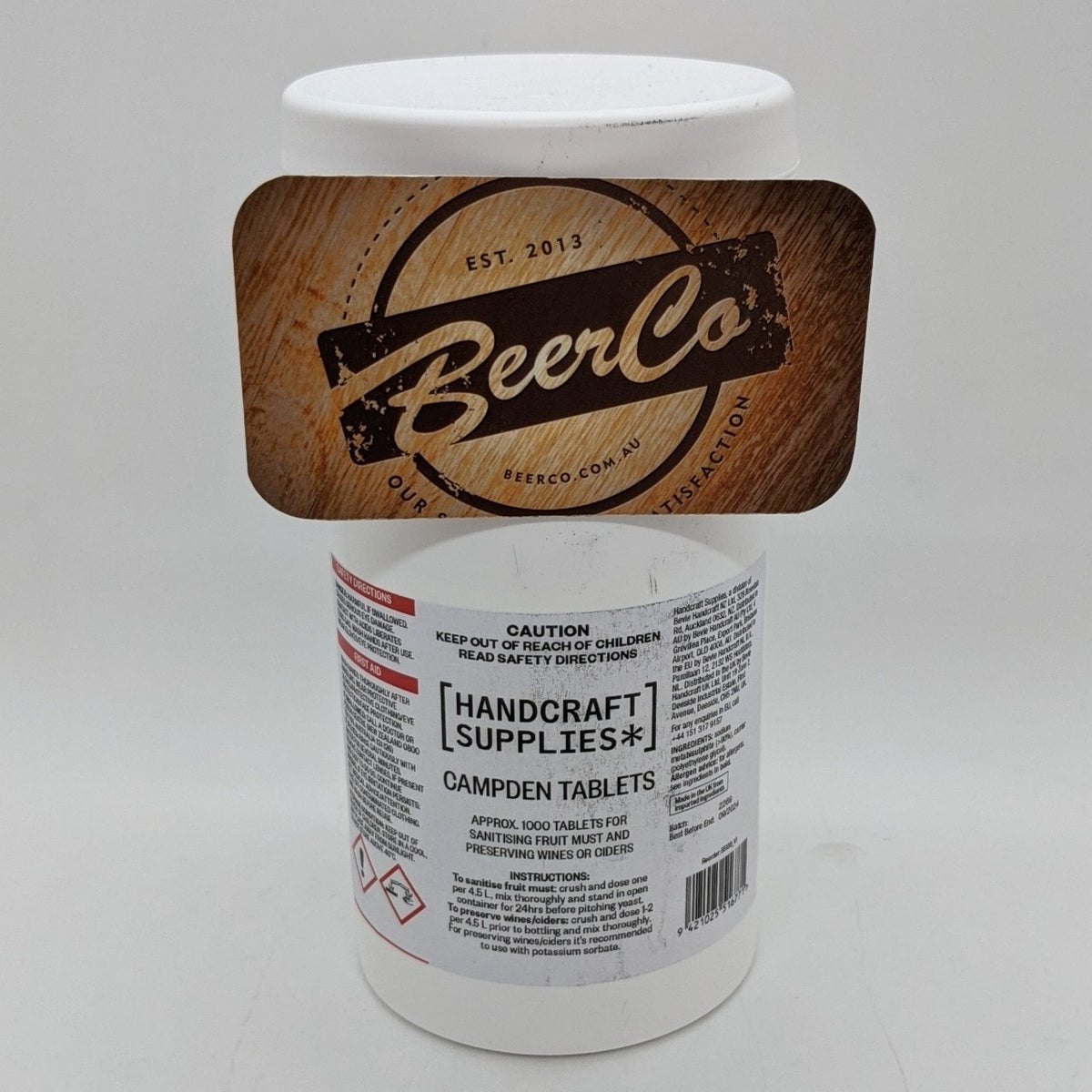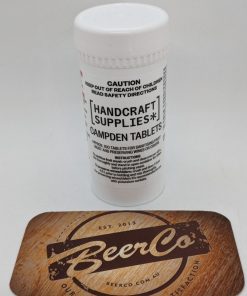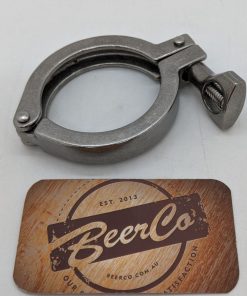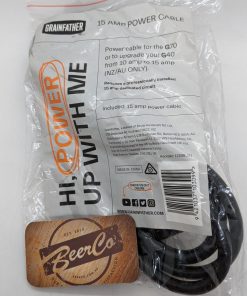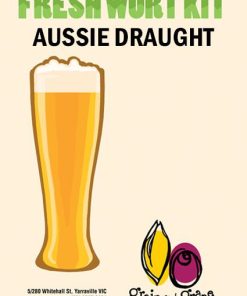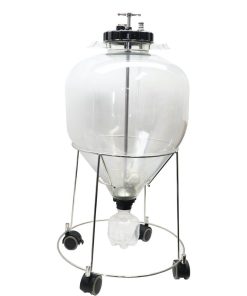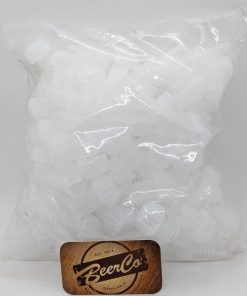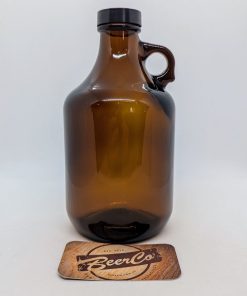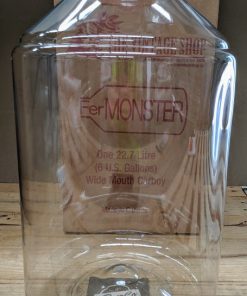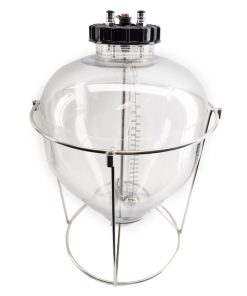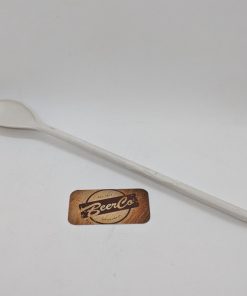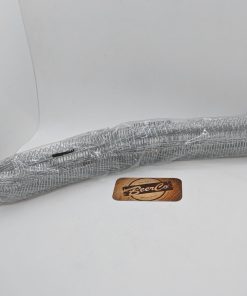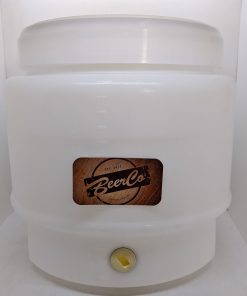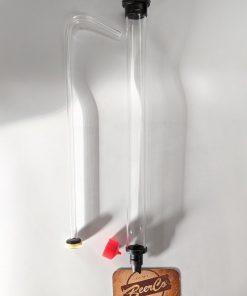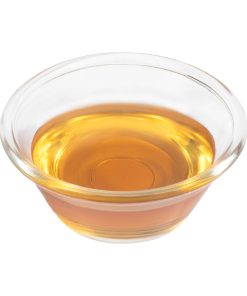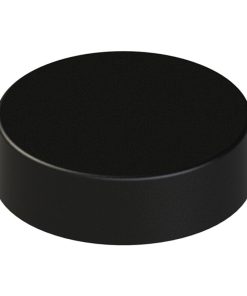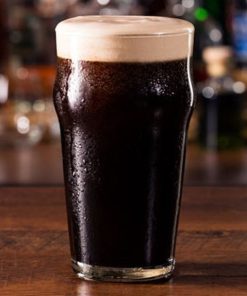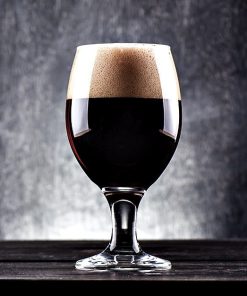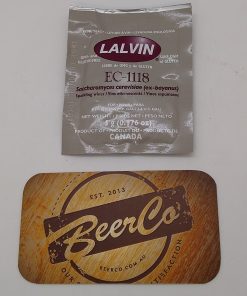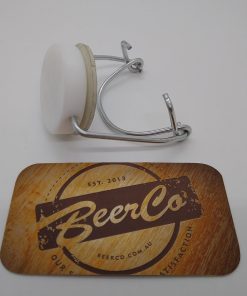Handcraft Supplies* | Campden Tablets Bevie
$ 9,95 $ 5,97
Handcraft Supplies* Campden Tablets are used for sterilising and stabilising wine, cider and in beer making to kill bacteria and inhibit the growth of most wild yeast.
Directions for use:
- Use 1-2 tablets per 5L of must.
- Crush or dissolve in a little warm water before adding to wine or must.
- Sulphur Dioxide of 0.44g or 50 ppm if 1 tablet added to 5 Litres.
DANGER:
Causes serious eye damage.
Maybe harmful if inhaled.
FIRST AID:
If swallowed, induce vomiting immediately as directed by doctor. If inhaled, seek fresh air and medical attention.
KEEP OUT OF REACH OF CHILDREN
Ingredients:
Sodium Metabisulphite, (>90%, carrier (polyethylene glycol).
Made in the UK from imported ingredients.
(K2S2O5), commonly abbreviated KMS, is a powdery, white, strongly sulfurous-smelling (burned match) chemical used in many food and beverage industries, as well as in breweries as an antioxidant. When dissolved in water or beer, KMS releases free sulfite ions, and these are responsible for the antioxidative properties of the compound. KMS is by far the most popular antioxidant used in the brewing industry. Its popularity within some large breweries is because it is highly effective at preventing oxidation and because the added sulfites improve the naturally occurring sulfites produced by the yeast during fermentation. KMS is also active in limiting growth of wild yeasts and bacteria in beer.
Free sulfite reacts very readily with and thus eliminates free oxygen in foods (including beer), but also with many intermediary chemicals compounds (most important, aldehydes and ketones) that can combine with free oxygen into the stale and papery-tasting compounds so undesirable in beer.
KMS is allowed by Food Health and Safety authorities in most countries (it has the E-number 224 on the EU positive list of food additives) around the world, but it is not permitted by Germany’s Reinheitsgebot (the German Purity Law, which is not, however, despite its name, an official law). KMS is rarely used by craft brewers anywhere, but it is common in mass-market beers in many countries. In most countries the use of KMS is regulated by specific limits either to the total concentration of sulfites in beer or by maximum allowed dosing rates. The reason for these limitations is that sulfites are known to provoke and worsen certain allergies in humans. For example, in the United States, levels above 10 ppm will require the words “contains sulfites” to be printed on the label.
KMS is very widely, almost universally, used in the wine industry for the same purposes as in brewing, but in wine KMS is used at concentrations 10–20 times higher than in beer.
Ilett, D. R.Aspects of the analysis, role, and fate of sulphur dioxide in beer—a review. Master Brewers Association of the Americas Technical Quarterly 32(1995): 213–21.
Anders Brinch Kissmeyer in Craft Beer and Brewing Magazine
Commonly used in cider and wine making in the following way:
Add one or two crushed Campden tablets (potassium metabisulfite) to the juice before fermentation to prevent any growth of wild yeast and bacteria. (Don’t boil the cider to sterilize it. Boiling causes the pectin to set, which creates a hazy beverage.) After adding the tablets, he lets the juice sit for twenty-four to thirty-six hours before pitching the yeast.
| Size | 100 Tablets Approx., 1000 Tablets Approx. |
|---|
Fast shipping and professional packing
We offer a wide range of shipping options due to our long-running partnerships with UPS, FedEx and DHL. Our warehouse staff are highly trained and will package your items according to our precise and precise specifications. Before shipping, all goods are thoroughly inspected and securely secured. Every day we ship hundreds of packages to our customers from all over the world. This is a sign of our commitment to be the largest online retailer worldwide. The warehouses are located situated in Europe as much as they are in USA.
Note: Orders containing multiple items will have a different processing period for each item.
Before shipping the items, our staff will carry out an extensive inspection of the products you have ordered. The majority of orders are delivered within 48 hrs. The delivery time should be between 3-7 working days.
Returns
We don't manage the stock in our factory and warehouse. Actual stock levels may fluctuate at any moment. Be aware that it's possible that your order will be out of stock after you have placed the order.
Our policy is for 30 days. Unfortunately, if 30 days have passed from the date you purchased the product, we are unable to offer you a return or exchange.
The item must not be used, and it must be in the original packaging. It must also be in the original packaging.
Related products
Equipment
Equipment
Brewing Aids
Brewing Aids
Brewing Aids
Equipment
Equipment
Brewing Aids
Equipment
Equipment
Equipment
Brewing Aids
Brewing Aids
Yeast
Brewing Aids
